Come on this World Tour to a little known place in the
world to discover how older persons are living. In our World Tour
section, Global Action on Aging presents some bottom-up projects in
developing countries that we’ve discovered are trying to meet older
people’s needs. We show you the actual project, along with a variety of
photographs, a brief explanation about the country’s particular
situation, local laws affecting older persons, the country’s demographic
situation and its cultural perception of aging.
In 2002, many nations came together in Madrid to debate and
eventually adopted the Madrid International Plan of Action on Aging (MIPAA).
Trying to better serve older people’s needs, the authors made recommendations
about the specific rights of older people and promoted the idea of "solidarity
between generations at all levels which is fundamental for the achievement of a
society for all ages." In the subsequent years, many nations, particularly the
poor, have not had the resources or capacity to put the recommendations into
practice. However, this web section demonstrates that citizens and local
organizations--sometimes with help from governments- have reached out to serve
older people in a “bottom-up approach.” Also, older persons themselves have
organized to improve their situation.
Presentation of the Country
Presentation of Nepal
Nepal is a landlocked Himalayan country in South Asia bordered by Tibet to the
north and India to the south, east and west…
_______________
Elderly's Home
Social Welfare Centre Elderly's Home, Pashupatinah
Mother Theresa’s
Missionaries of Charity founded the Social Welfare Centre Elderly's Home. The
Nepal Government also sponsors The Home. Located in Pashupatinah - a holy place
close to Kathmandu - the Home hosts destitute Nepali elders, offering shelter,
meals and clothes. The total housing capacity is 230 people. Several criteria
govern who is chosen. The following articles relate to this Home and give the
reader some insight about the situation in Nepal. Readers will notice the
different perceptions of this Older Persons Home in contrast to more Western
notions. When Westerners visit the Home, they remark about the sparse, basic
living conditions that the older people experience there. However, the Home’s
residents consider themselves some of the most fortunate elders in all of Nepal.
_______________
Demographics
Demographic Situation of
Aging Population in Nepal
Since little is known about the elderly in Nepal, this report gives
basic information about the aging population in Nepal, including census
data and other materials. One major trends is the increasing proportion
of elderly. During the second half of the twentieth century, life
expectancy in Nepal increased dramatically from 27 to 60 years. However,
in comparison with other poor countries, few aging breakthroughs can be
identified. _______________
Legislation on Older Persons
Little legislation exists that focuses on older people in Nepal. The
Constitution mentions older people by stating people who have to be specifically
taken into account. Also, Nepal participated in the Second World Assembly on
Aging. Last, the following articles about Legislation on Older People reveal
that the government has taken some action, if limited, to protect older people.
Constitution of the Kingdom of Nepal (1990)
The Nepali
Constitution enacted in 1990 aims at protecting children, women, disabled and
older people in various fields such as Education, Health, and Social Security.
Nepal and the World Assembly on Aging (2002)
Nepal sent its
representative to attend the Second World Assembly on Aging in Madrid. Here is
the speech of the Nepali Representative and a press article about this Assembly.
Articles about Legislation on older people
These articles dealing with some recent legislation drafts from the government
on older people, such as an eventual “Senior Citizens Act” to ensure social,
economic and human rights of the elderly citizens.
Life as an Older Person
Life as an Older person in Nepal
While MIPAA says that nations must focus on "Ensuring enabling and supportive
environments", one of its objectives is the "provision of a continuum of care
and services for older persons from various source." But given the fact that
Nepal is one of the poorest countries in the world, older people consequently
face many difficulties. By economic standards, people over 75 years old in
Nepal receive a very small allowance from the government, only 150 Rs per month,
that’s “nothing but peanuts.” Even the qualified often cannot walk to the
district headquarters to claim it since it’s too far away. By social standards,
until recently, the Nepali family traditions and values ensured care for their
older members. But now, the nuclear family is replacing the traditional
multi-generational family in urban areas, isolating older members. These
articles illustrate their situation.
_______________
Gallery
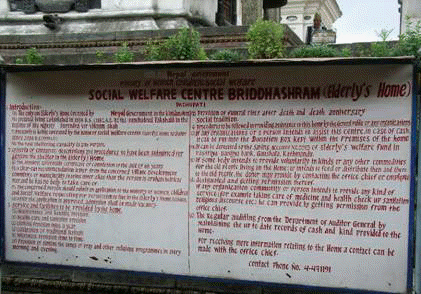
The Social Welfare Centre Briddhashram
Elderly's Home
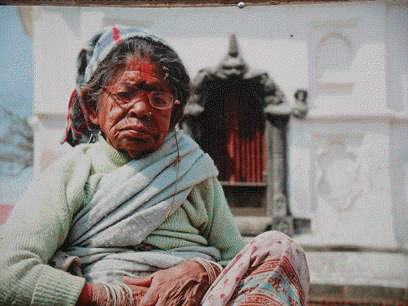
A pensioner of the Home
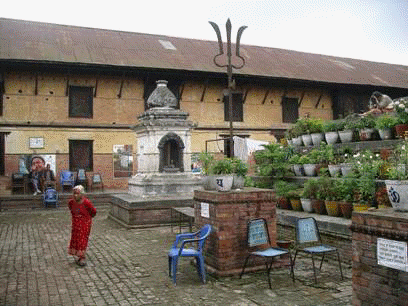
The courtyard
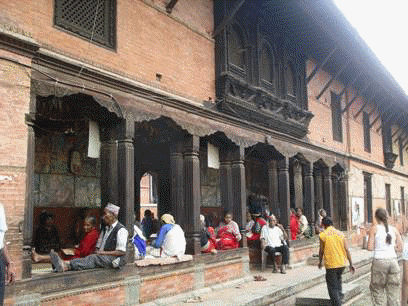
The arcade in the courtyard
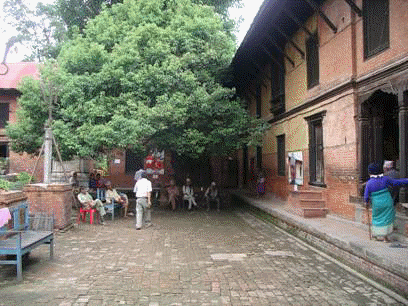
The courtyard
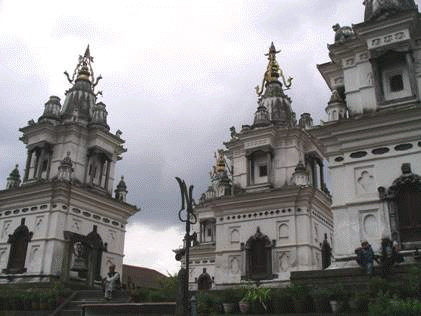
Temples
in the middle of the courtyard
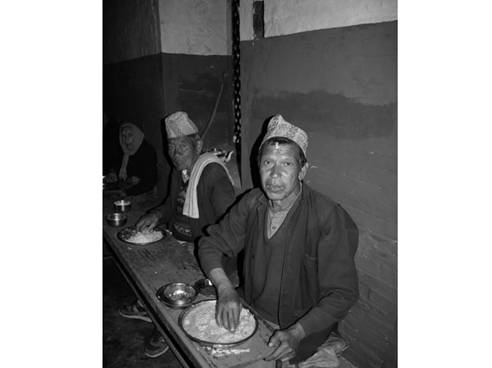
“We are served
good food and then we go for prayers in the morning and in the evening."
March 2007: SRI LANKA
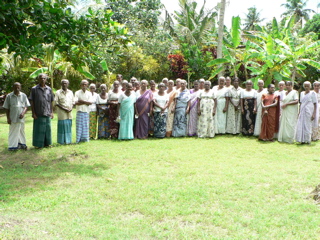
Presentation of the Country
Presentation of Sri Lanka
Sri Lanka, officially the Democratic Socialist Republic of Sri Lanka, is
an island nation in South Asia. More than 20 million people live in this
nation, formerly known as Ceylon in the period before 1972. Located
about 31 kilometers (18 miles) off the southern coast of India, the
country produces tea, coffee, rubber and coconuts and boasts a
progressive, modern industrial economy.
_______________
Elderly's Home
The Jayawickreme
Foundation Day Care Centre for the Old People
Following the 2004 tsunami that traumatized and left many older persons bereft
of support, the Jayawickreme Foundation opened a day care center for forty older
persons. The older persons lived in the hard-hit coastal community of Weligama
in southern Sri Lanka. Operated free of charge since opening in October 2006,
the Day Care Centre serves persons of all religions and communities, an
important feature where many people face discrimination and reprisal due to
their religion(s) and ethnic backgrounds.
_______________
Demographics
Demographic Implications of
Health Care in Sri Lanka
Over the next 25 years, the number and proportion of older persons will
gain momentum in Sri Lanka. By 2020, Sri Lanka will experience South
Asia’s most rapid population growth. Older Sri Lankans will demand a
great share of the financial resources for their health care needs in
the coming decades.
_______________
Legislation on Older Persons
Sri Lanka Statement at the
Second World Assembly on Aging
This statement of Sri Lanka during the Second World Assembly on Aging in 2002
gives us a glimpse into the legal framework for the elderly in Sri Lanka. In the
main, the Protection of the Rights of Elder Act and the National Committee on
Aging constitute the primary legal support for older persons in Sri Lanka.
_______________ Life as an Older Person
Since 1983, the 3.1 million ethnic Tamil minorities have fought for a
separate homeland. In March 2007, the World Food Program said that
more than 155,000 displaced people are estimated to need immediate
food and relief assistance in the conflict-affected area, including
many older persons. In addition, the conflict has left 65,000 people
dead and more than 300,000 homeless. In 2004, Sri Lanka was strongly
hit by the Tsunami disaster. Find below more information about its
impact on older persons.
UN Roundtable on Older Persons in the 2004 Tsunami
What happened to older persons in the aftermath of the 2004 Tsunami?
Ignored or engaged? Global Action on Aging and Help Age International
asked UN experts, affected government leaders, relief agencies and local
NGOs to answer these tough questions. Their analyses and ideas at the
UN's Commission for Social Development revealed ways to serve older
persons better in emergencies. Click here
to read the speech of Susanne Loos-Jayawickreme, Vice-Chairperson of
the Jayawickreme Foundation.
Sri Lanka: Report of the National
Workshop on the Impact of the Tsunami on the "Vulnerable Groups" and
Women (October 21, 2005)
This workshop that the Economic and Social Commission of Asia
Pacific (ESCAP) organized provided a forum for the voices of people
with disabilities, including older persons and women, in the
tsunami-affected areas of Sri Lanka. It explores lessons learned and
the implications for post-tsunami reconstruction programs and
policies and agrees on a set of recommendations that has been shared
in a regional meeting. It gives decision makers more understanding
of what specific groups require for assistance and how certain
issues can make vulnerable persons even more vulnerable in time of
disaster.
________
Gallery
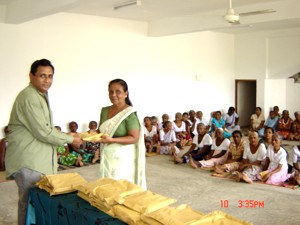
Clothing
for old people
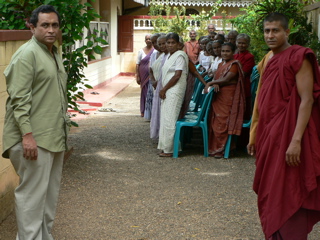
Day care centre for 40 old people
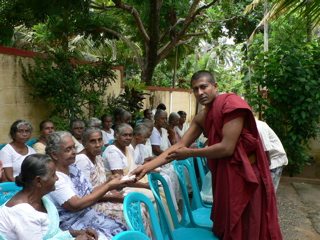
Day care centre for 40 old people

Day care centre for 40 old people
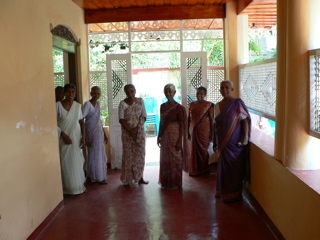
Day care centre for 40 old people
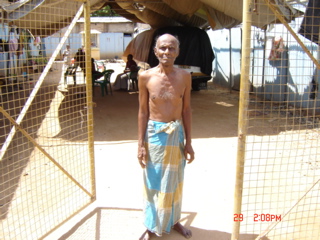
Day care centre for 40 old people
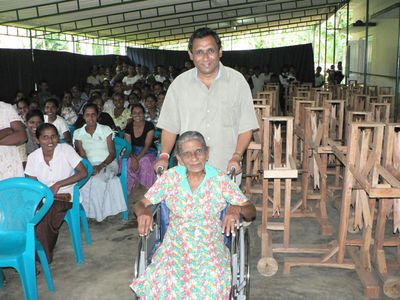
Day care centre for 40 old people
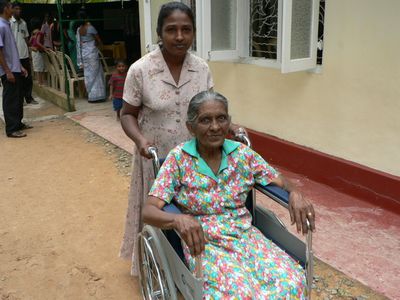
Day care centre for 40 old people
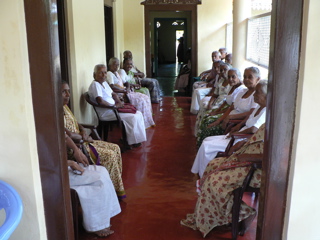
Day care centre for 40 old people
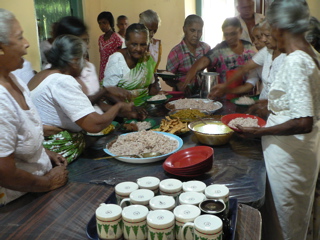
Day care centre for 40 old people
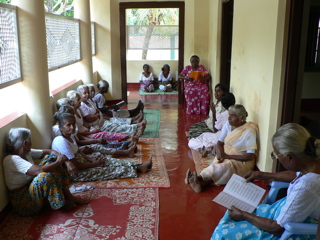
The old people gather for meditation
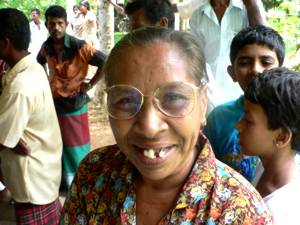
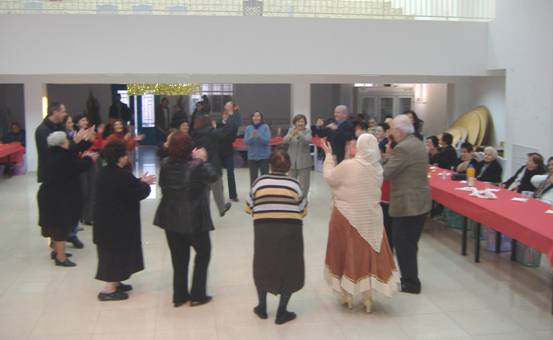
Presentation of the Country
Presentation of Palestine (UN
Source)
This UN document gives a factual background to the current situation of
Palestine.
Click here for more UN sources about Palestine.
_______________
Elderly's Home
Ramallah Elderly Day Care Center by
Caritas Jerusalem
The Roman Catholic organization, Caritas Jerusalem, initiated an elderly
day center in 1990 that provides a glimpse into older Palestinians’
lives. Caritas works to improve the quality of life of older
Palestinians by giving them food, health care, social assistance as well
as entertaining social activities. Organizers say that they try to
remind the older persons that they have not been forgotten.
_______________
Demographics
A First Glimpse at the 2004 Palestinian Demographic and
Health Survey
Older persons constitute around 4% of the Palestinian population. Few
health programs and services reach them. This survey contains
information about the demographics of Palestinians as well as access to
health care.
_______________ Life as an Older Person
The Elderly in Palestine
In the West Bank, older citizens are among the most vulnerable groups in the
Palestinian population. They face insufficient health care, lack of social
welfare assistance, as well as loneliness. The Palestinian National Authority’s
Ministry of Social Affairs gives senior citizens a monthly stipend of 90 NIIS
which is approximately $2. Obviously, this amount can cover a small fraction of
their daily expenses.
________
Gallery
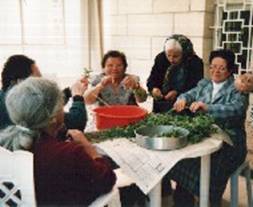
Ramallah
Elderly Day Care Center
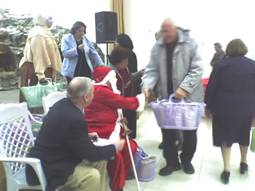
Elderly
receiving a gift for the Holidays.
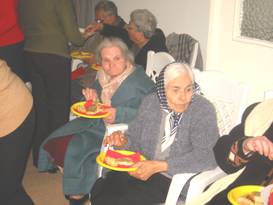
Ramallah
Elderly Day Care Center
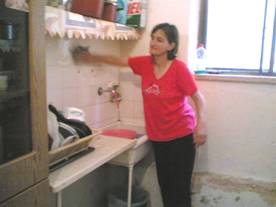
Ramallah
Elderly Day Care Center
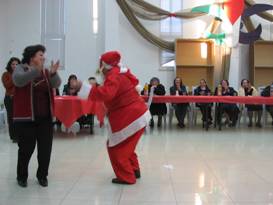
A Holiday Party
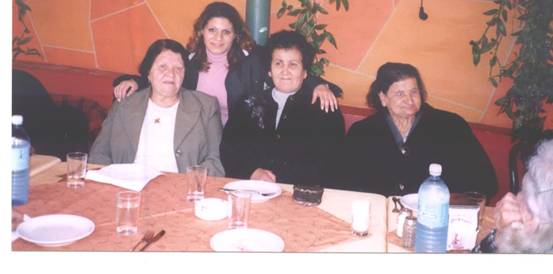
Ramallah Elderly Day Care Center
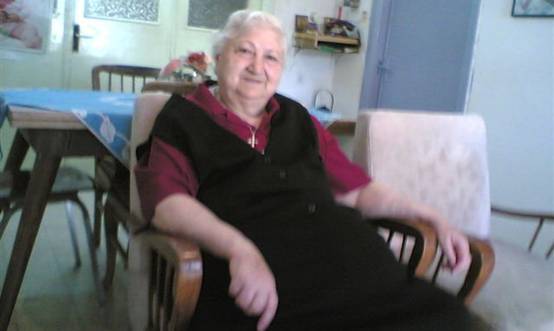
Ramallah Elderly Day Care Center
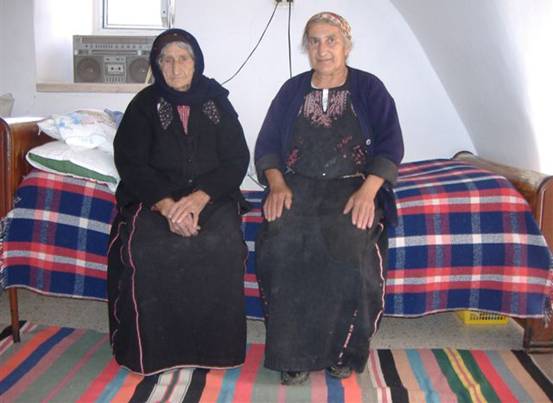
Ramallah Elderly Day Care Center
Copyright © Global Action on Aging
Terms of Use |
Privacy Policy | Contact
Us










